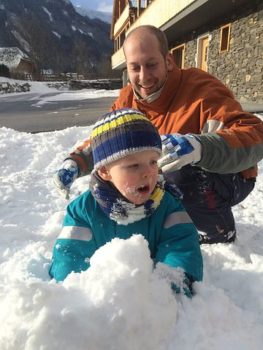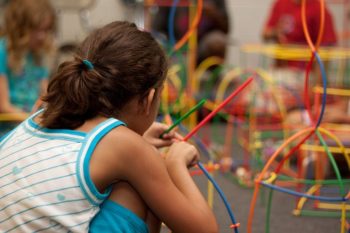Winter Family Play Activities
 Winter Family Play Activities
Winter Family Play Activities
Happy New Year 2025! Winter is here and our kids spend hours playing on their electronic devices and binge-watching television and movies. Parents are busy getting ready for a new year of juggling family schedules, working, maintaining household chores, and just enjoying life as time allows. Here are ten strategies that families can use to get moving and enjoy various winter activities:
- Convene a family meeting and organize one special family activity for each month of the year. For example, in January the family can travel to a snow location or somewhere nearby with a change in weather for a nature adventure. The family can pack a tailgate picnic if it is too cold or wet to eat outside. Some of our favorite activities include hiking in the snow or snowshoeing. We enjoy making our annual snow person and completing the day with a snowball fight.
- We love rain walks. The kids love to jump in puddles, make dams in gutters, walk through small steams, and try to create temporary dams in gutters and small streams. Umbrellas are another great toy to use when exploring during rain storms.
- We hike in nearby parks to observe nature in the rain or a storm. We love to find insects and spider webs glistening in the rain. Did you know that some spiders make stronger webs during various seasons to sustain wind and storm damage?
- We travel to the coast to watch the waves on a stormy day. Sealife and ocean observations are enhanced during rain storms. Tide pools are fun to observe right before and after a storm to compare changes in the environment.
- We learned about spiders and their webs by reading nonfiction books about arachnids at the library. We love to visit the library on a rainy day and curl up in a chair to read any book we want to read. Then we check out our favorite books to read at bedtime for the next two weeks.
- Window shopping is another fun activity while taking a rain walk or cold weather hike. There are some many interesting items to look at in shop windows and in various stores. Our grandkids lead their younger cousins through stores by clasping their hands behind their backs. It is a fun game. Another parent takes photos with her camera of items a child might like for a gift in the future.
- Kids love visiting museums to learn about the past, their heritage, and about the history of a community. Children can take pictures and then create a little book about their visit. Older children can research online topics of interest and write reflective stories about their adventures.
- A monthly family art project can reinforce a specific holiday or celebration for each month of the year. In January we make snowflakes with templates to show interesting ways to cut paper. We read about snow crystals and draw various snow crystal formations. In February, the children can create valentines and write love notes that they can mail to relatives in celebration of the holiday.
- A monthly family service project might include dropping off cans of food to the local food bank, making valentines to distribute to seniors or service members, and making flower containers with flower seeds for seniors to celebrate spring.
- Finally, each evening at dinner we review our family activities for the day and express gratitude for something we’ve enjoyed as a family. Then we each share some activity we are looking forward to doing in the next day. Finally, we each discuss a challenge that was hard for us that day. Our grandkids call this daily reflection a rose for gratitude, a bud for an anticipated gratitude, and a thorn for dealing with a challenge.
May your 2025 family calendar highlight many opportunities to embrace daily attitudes for expressing gratitudes!
 Summertime Social-Emotional Learning Routines
Summertime Social-Emotional Learning Routines Grandparenting an Athlete
Grandparenting an Athlete Nurturing Your Children’s Passions
Nurturing Your Children’s Passions  Acts of Kindness Monthly Calendar
Acts of Kindness Monthly Calendar